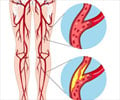Information technologies like computer-based screening, which give immediate results of the doctor-patient interaction, may prove to be life-savers for adolescents by quickly identifying high-risk behaviours among them, says a new study.
Background information in the study report suggests that injury risk, depressive symptoms and drug and alcohol use are the leading causes of adolescent morbidity and mortality.During a study, researchers at the Center for Innovation in Pediatric Practices in The Research Institute at Nationwide Children's Hospital found that adolescents who participated in computerized screening with real-time results were more likely to be identified as having a problem by their paediatrician than adolescents whose screening results were delayed.
The researchers compared the results of 878 primary care patients, aged 11 to 20 years, who participated in a unique, computerized behavioural screening system between June 1, 2005 and February 20, 2006 called "Health eTouch".
They revealed that Health eTouch is a Web application developed by researchers at Nationwide Children's, which presented to patients on secure wireless Web tablets with 10-inch touch screen displays during the study.
The volunteers participated in Health eTouch screening in the waiting rooms of the urban clinics they attended.
The clinics were randomly assigned to have paediatricians either receive screening results just prior to face-to-face encounters with patients, "Immediate Results" condition, or two to three business days later, "Delayed Results" condition.
Advertisement
Among the participants who screened positive, and whose results were provided to paediatricians just prior to their consultation, 68 per cent were identified as having a problem by their paediatrician, while only 52 per cent of youths whose results were delayed were identified as having a problem by their paediatrician.
Advertisement
"Our research has found that recent advances in information technology, such as the Health eTouch system, and the immediate reporting of computerized screening results may help overcome barriers to behavioural screening," added the researcher.
Information technologies are useful also because previous studies had revealed that adults and adolescents were more willing to disclose sensitive information to a computer than to a clinician.
Source-ANI
SPH







